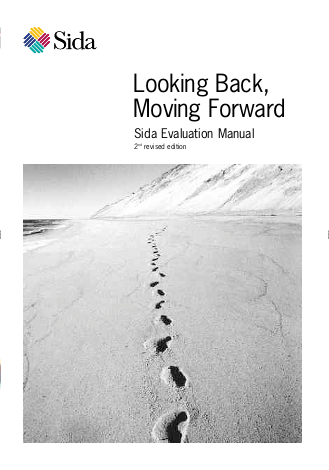2nd revised edition

This is a manual for evaluation of development interventions. It is intended primarily for Sida staff, but may also be useful to Sida’s co-operation partners and independent evaluators engaged to evaluate activities supported by Sida.
It consists of two main parts. The first deals with the concept of evaluation, roles and relationships in evaluation, and the evaluation criteria and standards of performance employed in development co-operation. The second is a step-by-step guide for Sida programme officers and others involved in the management of evaluations initiated by Sida or its partners.
Although it can be read in its entirety all at once, most readers will probably use it in a piecemeal fashion. A reader who wants a rapid overview of basic concepts in the evaluation of development interventions should consult part one. A reader who is engaged in the management of an evaluation, may turn directly to part two and return to part one as need arises.
Some familiarity with basic development cooperation terminology is helpful, but not essential. What is required, on the other hand, is a readiness to engage with new concepts, some of which may seem complicated at first glance. A certain tolerance of ambiguity is also useful. Although evaluation is a professional field of its own, many of its key terms do not have standard definitions.
The manual adheres to the terminological conventions recommended by the OECD/DAC Glossary of Key Terms in Evaluation and Results-Based Management, which is included as an annex. Yet, in some cases it also takes notice of alternative usage. For Sida evaluation managers who must agree on conceptual matters with cooperation partners and professional evaluators some knowledge of the variability of international evaluation terminology can be very useful.
Two limitations should be noted. One is that this is a handbook for evaluation managers rather than evaluators. While it deals extensively with conceptual and organisational matters, it has little to say about the technicalities of the evaluation research process. Still, evaluators may find it useful as a reference point for discussions about evaluation with Sida and its partners.
A second limitation is that it focuses on matters that are common to all or most kinds of development evaluations. It does not deal with the peculiarities of the different sub-fields of development evaluation. Readers seeking information about matters that are unique to the evaluation of humanitarian assistance, research co-operation, programme support, and so on, must turn to other manuals.